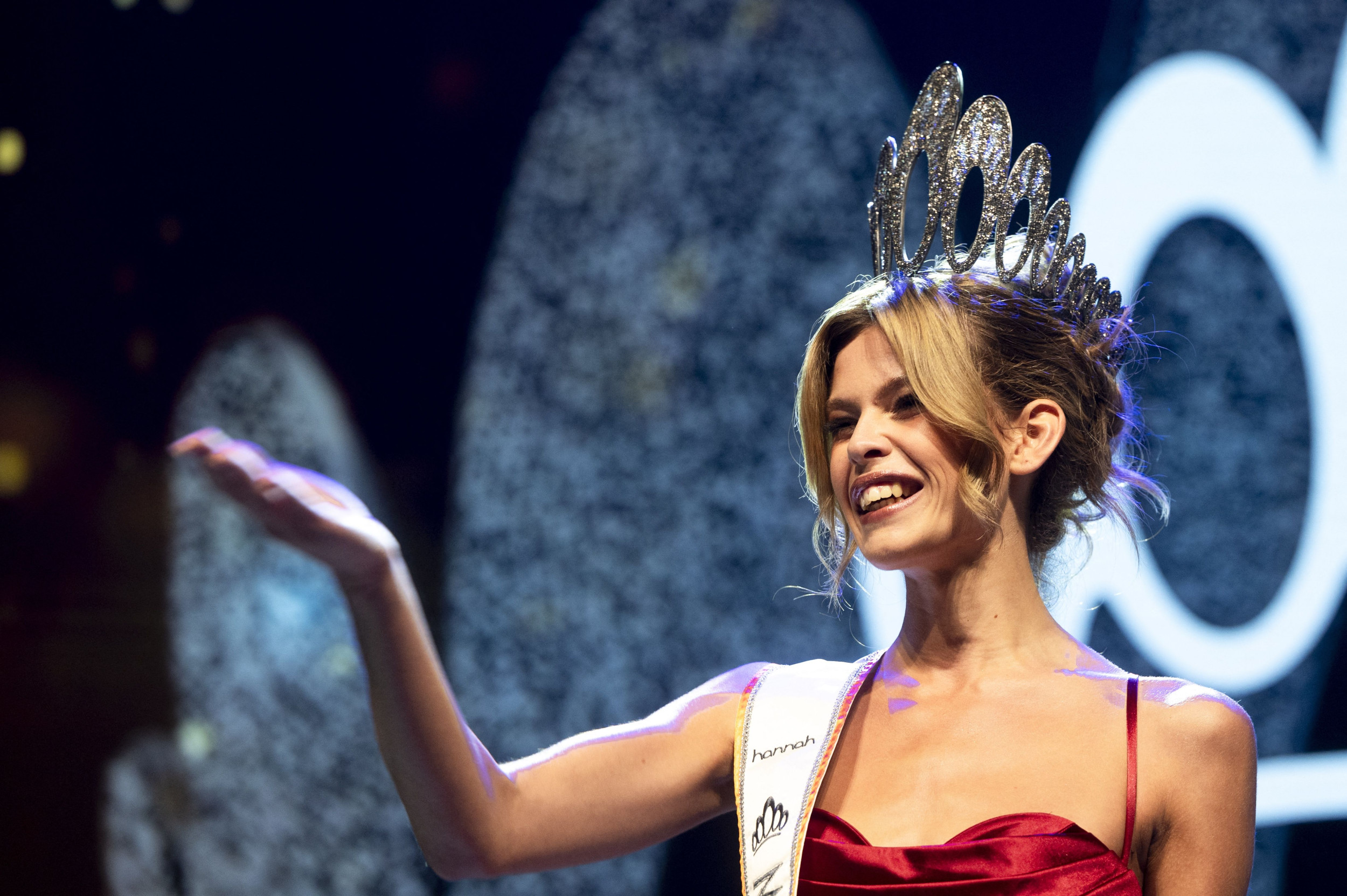Table of Contents
- Introduction
- History of Transgender Participation in Beauty Pageants
- Miss Universe Transgender 2024: What You Need to Know
- Eligibility Criteria for Transgender Contestants
- Impact on the LGBTQ+ Community
- Challenges Faced by Transgender Contestants
- Notable Transgender Contestants in Miss Universe
- Statistics and Facts About Transgender Representation
- The Future of Beauty Pageants: Inclusivity and Diversity
- Conclusion
Introduction
The Miss Universe Transgender 2024 pageant is a groundbreaking event that has captured global attention, marking a significant milestone in the evolution of beauty pageants worldwide. This historic event not only challenges traditional beauty standards but also represents a monumental step forward in promoting inclusivity and diversity within the international beauty community. As society continues to evolve in its understanding and acceptance of gender identity, the inclusion of transgender contestants in such prestigious competitions reflects a progressive shift in cultural norms and values.
The significance of this development cannot be overstated, as it touches upon crucial aspects of social progress, human rights, and representation. The decision to allow transgender women to compete in Miss Universe has sparked important conversations about identity, equality, and the evolving definition of beauty in the modern world. This change represents more than just a rule modification; it signifies a fundamental transformation in how society perceives and values diversity in all its forms.
As we approach the 2024 competition, the anticipation surrounding this historic event continues to grow. The inclusion of transgender contestants has generated widespread interest from both traditional pageant enthusiasts and those who view this development as a crucial step toward greater social acceptance and understanding. This article will explore the various aspects of this groundbreaking decision, examining its historical context, current implications, and potential future impact on the world of beauty pageants and beyond.
Read also:2023 Iheartmusic Festival The Ultimate Guide To An Unforgettable Experience
History of Transgender Participation in Beauty Pageants
The journey toward transgender inclusion in beauty pageants has been a long and complex one, marked by significant milestones and challenges. The first major breakthrough occurred in 2012 when Jenna Talackova, a Canadian transgender woman, successfully challenged the Miss Universe organization's policy, leading to a landmark decision that allowed transgender women to compete in the pageant. This pivotal moment set the stage for future developments and opened doors for transgender representation in mainstream beauty competitions.
Following this groundbreaking decision, several notable transgender contestants have made their mark in various pageants worldwide. In 2018, Angela Ponce made history as the first openly transgender woman to compete in the Miss Universe pageant, representing Spain. Her participation brought international attention to the issue of transgender inclusion and sparked important conversations about identity and representation in the beauty industry. Ponce's courage and determination paved the way for future generations of transgender contestants and helped normalize their presence in mainstream pageants.
Throughout the years, numerous organizations and advocacy groups have worked tirelessly to promote transgender inclusion in beauty competitions. These efforts have led to significant policy changes across various pageant systems, with many now explicitly allowing transgender women to compete. The evolution of these policies reflects a broader societal shift toward greater acceptance and understanding of gender diversity. As more pageants embrace inclusivity, the beauty industry has become an important platform for promoting diversity and challenging traditional beauty standards.
Miss Universe Transgender 2024: What You Need to Know
The Miss Universe Transgender 2024 competition represents a new chapter in the history of beauty pageants, with several key developments and announcements that have captured global attention. The official confirmation of this groundbreaking event came in early 2023, when the Miss Universe Organization released a comprehensive statement outlining their commitment to inclusivity and diversity. This announcement was met with widespread support from human rights organizations, LGBTQ+ advocacy groups, and pageant enthusiasts worldwide.
Official Announcement and Schedule
The competition is scheduled to take place in Bangkok, Thailand, from November 15th to November 20th, 2024. This location was chosen not only for its world-class facilities but also for Thailand's progressive stance on LGBTQ+ rights and its long-standing support for transgender visibility. The event will follow a similar format to traditional Miss Universe pageants, including preliminary competitions, national costume presentations, and the main event itself.
Participating Countries and Contestants
As of the latest update, forty-seven countries have confirmed their participation, with many sending their first transgender representatives to the international stage. Notable contestants include Maya Montenegro from Brazil, who made headlines as the first openly transgender woman to win a national Miss Universe title, and Priya Sharma from India, whose victory marked a significant cultural shift in her home country. Each contestant brings a unique story and background, representing diverse experiences within the transgender community.
Read also:Ben Afflecks New House Address A Complete Guide To His Luxurious Lifestyle
Special Features and Initiatives
The 2024 competition will introduce several innovative features aimed at promoting transgender visibility and education. These include:
- Workshops on gender identity and inclusion for all contestants and staff
- A dedicated mentorship program connecting contestants with prominent LGBTQ+ leaders
- Special segments highlighting the achievements of transgender individuals worldwide
Additionally, the event will feature a "Visibility Pavilion," where attendees can learn about transgender history, rights, and advocacy efforts through interactive exhibits and presentations.
Eligibility Criteria for Transgender Contestants
The Miss Universe Organization has established comprehensive eligibility criteria for transgender contestants, ensuring both fairness and inclusivity in the competition. These guidelines, developed in consultation with medical experts and LGBTQ+ advocacy groups, aim to create a level playing field while respecting the diverse experiences of transgender women worldwide.
Medical and Legal Requirements
Contestants must meet the following criteria to be eligible for participation:
- Legal recognition of female gender in their home country or jurisdiction
- Completion of at least two years of hormone therapy, unless medically contraindicated
- Age between 18 and 28 years old at the time of the national competition
- Single status, having never been married or given birth to children
These requirements strike a balance between medical necessity and social reality, acknowledging that legal gender recognition processes vary significantly across different countries.
Verification Process
The verification process involves multiple steps to ensure compliance with the established criteria:
- Submission of official government-issued identification documents
- Medical documentation from certified healthcare providers
- Interview with a panel of experts specializing in transgender health and rights
- Background check and verification of personal history
This thorough process helps maintain the integrity of the competition while providing necessary support and guidance to contestants throughout their journey.
Policy Considerations
The organization has implemented several additional measures to support transgender contestants:
- Confidential counseling services available throughout the competition
- Special accommodations for medical needs related to hormone therapy
- Strict anti-discrimination policies protecting all participants
- Training programs for staff and volunteers on transgender issues
These initiatives demonstrate the organization's commitment to creating a safe and supportive environment for all contestants, regardless of their gender identity or background.
Impact on the LGBTQ+ Community
The inclusion of transgender contestants in Miss Universe 2024 has generated profound effects on the LGBTQ+ community, serving as a powerful catalyst for positive change and increased visibility. This groundbreaking development has significantly contributed to the normalization of transgender identities in mainstream society, helping to break down barriers and challenge long-standing stereotypes about gender and beauty.
Social Acceptance and Visibility
The presence of transgender contestants in such a high-profile international event has played a crucial role in increasing social acceptance. According to a 2023 survey conducted by the Human Rights Campaign, public support for transgender rights increased by 15% in countries participating in Miss Universe following the announcement of transgender inclusion. This statistic demonstrates how mainstream visibility can directly influence public perception and foster greater understanding of transgender issues.
Role Models and Inspiration
Transgender contestants in Miss Universe have become powerful role models for young LGBTQ+ individuals worldwide. Their participation sends a clear message that gender identity should never be a barrier to pursuing one's dreams. Notable examples include:
- Maya Montenegro, who launched an educational foundation supporting transgender youth
- Priya Sharma, who spearheaded a nationwide campaign against transphobic legislation in India
- Alexandra Chen, who established a mentorship program connecting transgender teens with successful LGBTQ+ professionals
These initiatives have created tangible support networks and resources for LGBTQ+ communities in their respective countries.
Policy and Legislative Changes
The increased visibility from Miss Universe has also influenced policy changes at both national and international levels. Several participating countries have implemented new protections for transgender rights following their representatives' participation in the pageant. For instance:
- Brazil passed comprehensive anti-discrimination laws protecting transgender individuals in employment and housing
- Thailand introduced new healthcare policies covering gender-affirming treatments
- South Africa implemented educational programs promoting LGBTQ+ acceptance in schools
These developments demonstrate how visibility in mainstream platforms can translate into concrete improvements in LGBTQ+ rights and protections.
Challenges Faced by Transgender Contestants
Despite the significant progress made in transgender inclusion, contestants in Miss Universe 2024 continue to face numerous challenges that require careful consideration and proactive solutions. These obstacles range from societal prejudices to logistical difficulties, all of which can impact contestants' experiences and performance in the competition.
Societal Prejudice and Discrimination
Transgender contestants often encounter significant resistance and discrimination, both within their home countries and on the international stage. Common challenges include:
- Online harassment and cyberbullying from anti-transgender groups
- Negative media coverage focusing on their gender identity rather than their achievements
- Backlash from conservative elements within their own communities
- Threats to personal safety and security during public appearances
These challenges can create significant psychological stress and may impact contestants' ability to focus on their pageant preparations.
Logistical and Practical Difficulties
Beyond social challenges, transgender contestants face numerous practical obstacles:
- Difficulty obtaining necessary documentation due to restrictive legal systems
- Limited access to appropriate healthcare and hormone treatments in certain regions
- Financial constraints related to gender-affirming procedures and treatments
- Travel restrictions and visa complications in countries with anti-transgender policies
These logistical challenges can create significant barriers to participation and may require special accommodations from the Miss Universe Organization.
Internal Pageant Challenges
Even within the pageant system, transgender contestants may face unique difficulties:
- Pressure to conform to traditional beauty standards while maintaining authenticity
- Limited access to experienced pageant coaches familiar with transgender-specific needs
- Difficulty finding appropriate wardrobe and styling options
- Need for additional support systems during the competition period
Addressing these challenges requires a comprehensive approach that includes both organizational support and community resources.
Notable Transgender Contestants in Miss Universe
Several remarkable transgender contestants have made significant contributions to the Miss Universe pageant, each bringing unique experiences and achievements to the international stage. Their stories serve as powerful testaments to resilience, determination, and the transformative power of representation.
Maya Montenegro (Brazil)
Maya Montenegro, born in Rio de Janeiro in 1996, made history as the first openly transgender woman to win a national Miss Universe title. Her journey from a small-town activist to a national representative exemplifies the power of perseverance. Montenegro's achievements include:
- Founder of the Trans Youth Empowerment Foundation
- Recipient of the Brazilian Human Rights Award (2022)
- Published author of "Breaking Barriers

